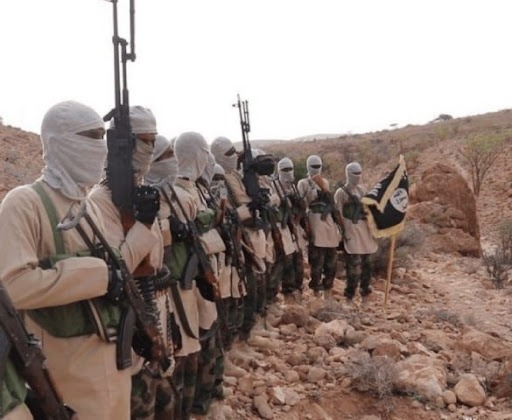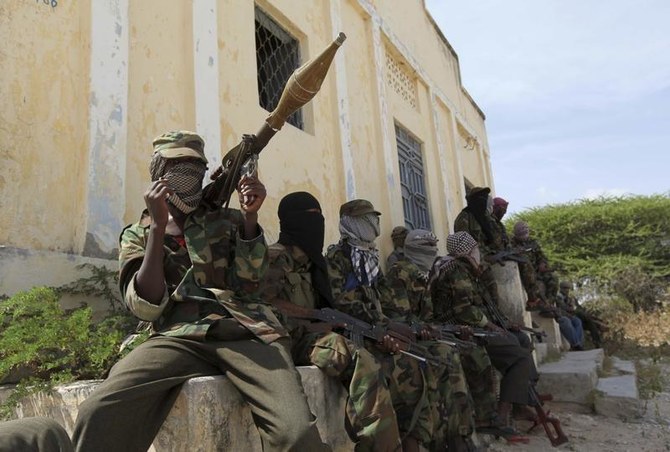Facebook Twitter (X) Instagram Somali Magazine - People's Magazine
More than 30 ISIS fighters were killed in airstrikes on Wednesday in Somalia’s Puntland region, security officials confirmed. The strikes targeted ISIS positions in the Almiskaad Mountains, specifically in the Sheebaab area of the Bari region. Puntland’s counterterrorism forces reported that most of those killed were foreign fighters, though their nationalities were not specified.
In a statement on X, Puntland’s Counterterrorism Operations said: “Two airstrikes took place tonight in the Sheebaab area of the Almiskaad Mountains, killing more than 30 ISIS terrorists, most of whom were foreigners, and destroying the supply vehicle they were transporting.”
These strikes came just a day after Puntland security forces launched a major assault on ISIS strongholds in the region. On Tuesday, Puntland authorities reported that more than 60 ISIS fighters had been killed in a joint air and ground operation in the mountainous areas of Bari. General Mohamoud Fadhigo, the spokesperson for Puntland’s Counterterrorism Operations, confirmed the success of the attack, emphasizing the significance of dismantling ISIS’s foothold in the area.

Meanwhile, the U.S. Africa Command (AFRICOM) announced on Tuesday that it had conducted an airstrike on February 1, killing 14 ISIS militants, including a senior leader. The strike targeted ISIS leaders hiding in cave complexes approximately 80 kilometers (50 miles) southeast of Bosaso, the capital of Puntland’s Bari region.
Among those killed was Ahmed Maeleninine, a key ISIS recruiter and financier. According to AFRICOM, Maeleninine played a crucial role in deploying jihadists to the United States and various parts of Europe. His death marks a significant blow to ISIS’s external operations and recruitment efforts.
Somali security forces have been actively engaged in counterterrorism operations against ISIS for over a month, successfully reclaiming significant territory from the group. These operations are part of a broader effort to dismantle terrorist networks that have long plagued Somalia and the surrounding region.
Somalia has faced persistent insecurity for years, with extremist groups such as ISIS and al-Shabaab carrying out deadly attacks and attempting to control various territories. Since 2007, al-Shabaab has been waging an insurgency against the Somali government and the African Union Transition Mission in Somalia (ATMIS), a multinational peacekeeping force authorized by the African Union and mandated by the United Nations Security Council.
Al-Shabaab, which is affiliated with al-Qaeda, has been responsible for numerous bombings, assassinations, and large-scale attacks targeting government institutions, security forces, and civilians. Despite efforts by Somali and international forces to weaken the group, al-Shabaab remains one of the most resilient terrorist organizations in Africa.
In response to the growing threat posed by both ISIS and al-Shabaab, Somali President Hassan Sheikh Mohamud declared an “all-out war” against the militant groups. Under his leadership, security forces have intensified their operations, particularly in regions where terrorist groups have historically maintained strongholds.
The recent airstrikes and ground offensives reflect Somalia’s commitment to eliminating ISIS’s presence in the country. The Puntland region, due to its mountainous terrain, has been a key hideout for terrorist groups, making it a strategic battleground in Somalia’s fight against extremism.
The operations have also highlighted the increasing role of international partners, particularly the United States, in assisting Somalia’s counterterrorism efforts. The U.S. military has frequently conducted airstrikes targeting high-ranking ISIS and al-Shabaab leaders, aiming to disrupt their command structures and operational capabilities.
While these recent successes mark a significant step forward, security analysts warn that ISIS and al-Shabaab are likely to regroup and adapt their strategies. The Somali government and its allies will need to maintain pressure through continuous military action, intelligence gathering, and regional cooperation to prevent the resurgence of these extremist groups.
The Somali people, who have long suffered from the violence and instability caused by terrorism, continue to hope for lasting peace and security. As government forces reclaim more territories and weaken terrorist networks, there is optimism that Somalia may finally be on the path to stability and development.
The coming weeks will be crucial in determining the long-term impact of these operations. With continued military offensives and international support, Somalia aims to ensure that groups like ISIS and al-Shabaab no longer pose a threat to the region or beyond. The fight against terrorism remains challenging, but recent victories indicate that Somalia’s determination to eradicate extremist elements is stronger than ever.

